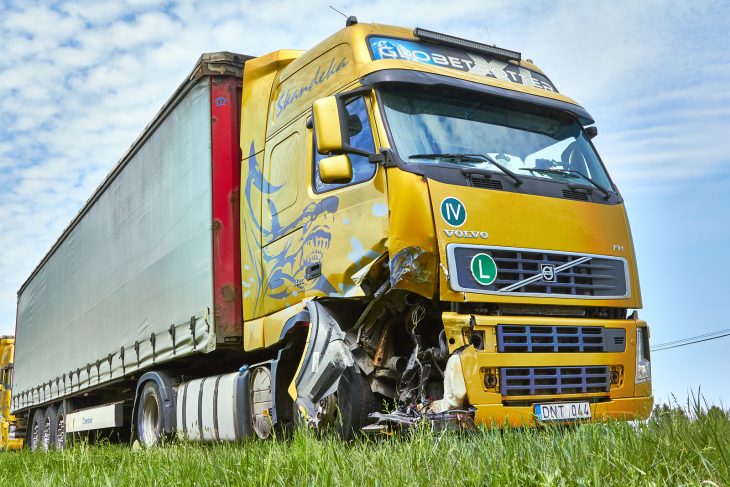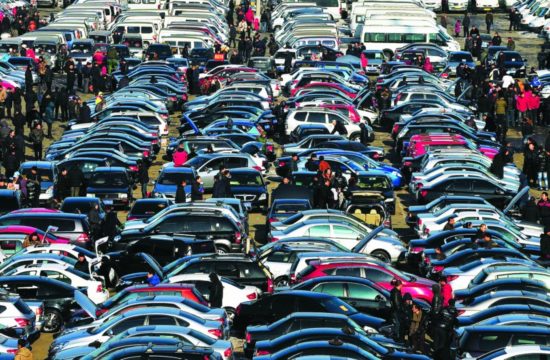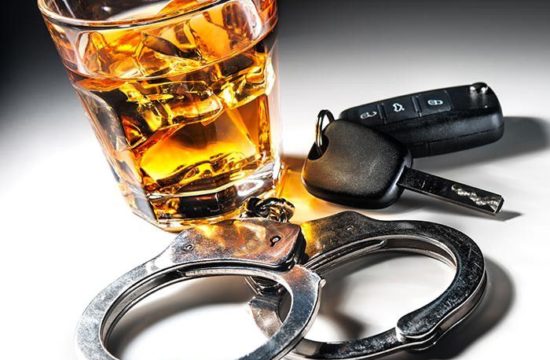
If you’re the victim of an accident involving a semi-truck, trailer truck, or a big rig, the consequences may be different from anything you have ever experienced. Whether you are a survivor struggling with catastrophic injuries or mourning the loss of a loved one, the way forward is not always clear. A truck injury attorney should be able to help lessen the burden by taking care of the legal issues while you are recuperating.
After the accident, you are left with a host of questions, including:
- What is the process of investigating a truck accident?
- How do you find out who is responsible for the wreck?
- What are the legal requirements for an injury claim?
Nothing can replace what you lost in your accident, but with some guidance, you can navigate through this terrible ordeal. Miami truck accident attorney Sean M. Cleary explains several of these issues below. Sean has over 20 years of experience representing truck accident victims and is a member of the Multi-Million Dollar Advocates Forum.
Truck Accident Investigation
After a semi-truck accident, an immediate investigation, beyond the one led by the police using the local accidents reports, can help determine the causes of the accident.
To prevent the destruction or deletion of vehicle operation and maintenance software and logs after the accident, the investigation may require a temporary restraining order or an order of impoundment for these sources of important operating information:
- The “black box,” GPS, and speed tracking systems
- The truck driver’s log
- The contents of the vehicles
- The truck maintenance and inspection history records.
Other data that may help prove whether the trucking company was grossly negligent includes:
- The training and qualifications of the fleet safety director
- Audits performed by the Department of Transportation (DOT) to make sure companies are following all their regulations and safety guidelines
- The trucking company’s accident statistics and any citations
- Its employee safety policy manual.
A thorough investigation should also include a look into the drivers’:
- Employment history
- Their qualification file
- Criminal background.
Furthermore, in reconstructing the accident, witness statements from those who have personal knowledge of the accident can be extremely valuable. For example, statements from:
- Tow truck drivers
- Investigating officers
- Fire personnel
Federal and State Trucking Regulations
Truck accidents law is similar to the legal rules that determine who is responsible for the personal damage resulting from a traffic collision. When you file an accident claim with the assistance of a truck accident lawyer and in order to prove a party’s negligence, you must prove the following elements:
- Their duty to exercise caution in a given situation
- A breach of duty
- Causation
- Your damages.
However, there are several issues specific to truck accident litigation – most importantly, there are the Federal Motor Carrier Safety Regulations (FMCSA) for trucks operating in interstate commerce.
FMCSA standards of compliance are mostly aimed at safety and ensuring that trucks do not become a danger to everyone else on the road.
That is why, when the accident involves a truck that is subject to federal regulation, it is necessary to analyze in detail both the incident as well as the regulations. The regulations cover:
- Driver qualifications and training
- Hours of service
- Truck safety equipment.
Investigating compliance with federal regulations can determine whether failure to follow these regulations led to a truck accident. For instance, the truck driver that caused the accident might have been drowsy and had slower reaction times because they were behind the wheel well beyond their shift. Or the truck involved in the serious accident could have had a tire blowout because it was poorly maintained.
Even when the truck involved in the accident was not subject to federal regulation, it is important to analyze the applicable state standards and regulations for trucking companies.
Third-Party Liability
After a truck accident, it is important to identify all sources of recovery or insurance available and find out if third parties also share liability.
For example, a trucking company whose name and license number are displayed on a tractor-trailer is considered vicariously liable for the actions of a negligent driver. If you’re an unfortunate victim of a truck accident which caused you some kind of disability, then under social security disability law, you can apply for the compensation and disability claims that you deserve.
In other cases, if the truck was leased, the owner may be liable if a defect or malfunction caused the accident. Multiple leasing arrangements can further complicate the matter and confuse you when you file your claim.
Sometimes, to avoid liability, the motor carrier may have a contract designating the driver as an independent contractor. But you may circumnavigate the contract by finding evidence showing the driver’s employee status, such as the motor carrier’s right to command the driver.
Showing that the employer exercised immediate control over a driver’s activities and finding out who was responsible for what is often one of the most challenging parts of making a claim.
It requires an analysis of the entire contractual arrangement. It also requires evidence that the motor carrier:
- Dispatched a driver to pick up and deliver a load
- Decided the specific routes the driver had to take when transporting its goods
- Supervised the driver
- Set the truck schedule.
Also, companies that manufactured the truck or its parts may be held liable for defects and malfunctions that contributed to the accident and any subsequent injury. Find reputable semi truck accident lawyers for legal help. Companies or individuals responsible for maintaining and repairing the truck may be liable for improper repairs or poor maintenance.
Lastly, improperly secured or tied downloads may cause accidents, and it is important to note that when distributors or shipping companies fail to load and secure their goods properly, they may share liability for accidents involving commercial trucks that result in serious injury and property damage.








